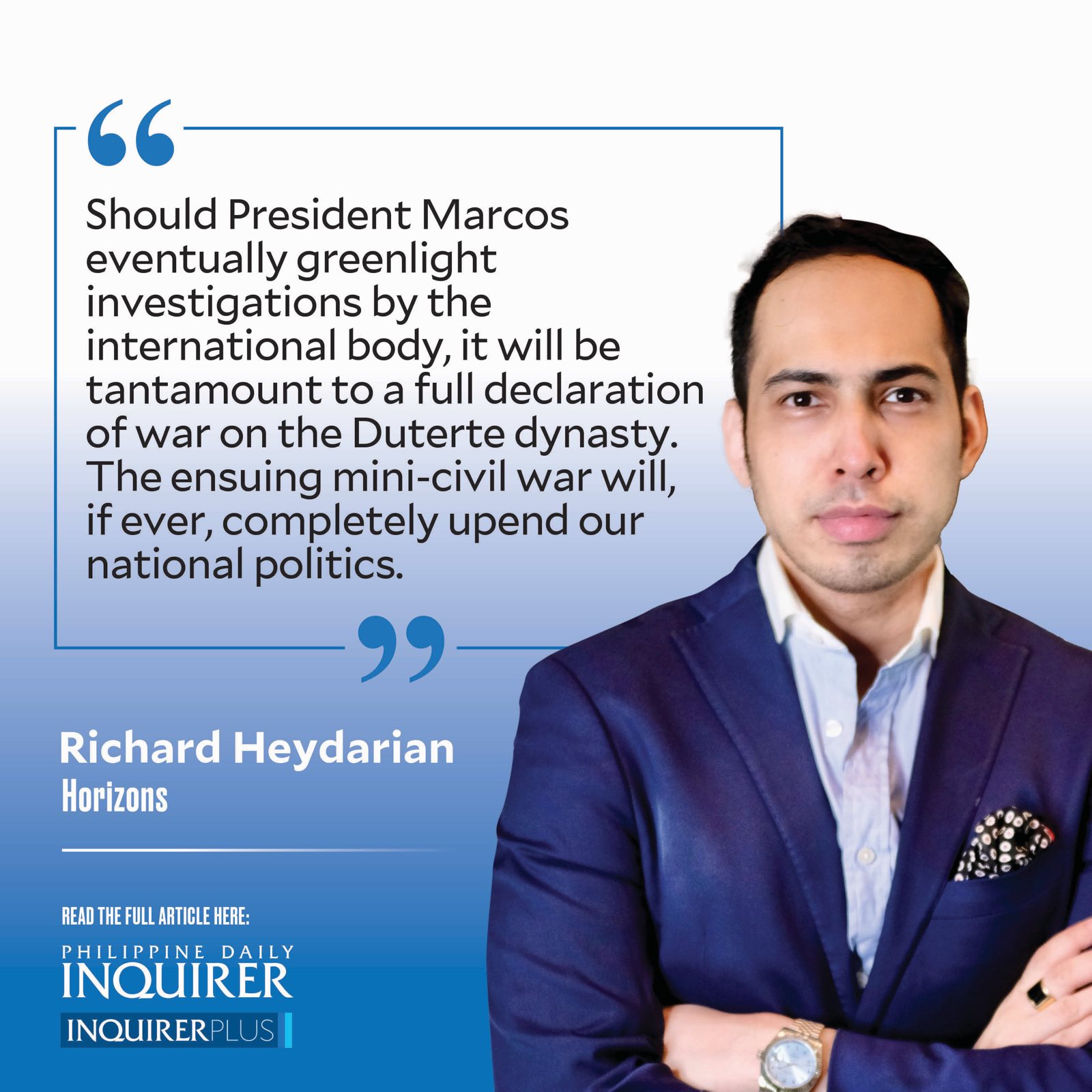ICC: Marcos’ most consequential decision?

In the Philippines, justice is often in the eye of the throne holder. Nothing better captures this stark reality than the uncertain fate of the much-delayed investigation by the International Criminal Court (ICC) into allegations of mass atrocities under the Rodrigo Duterte administration.
In just a matter of months, the current leadership’s position on the issue has radically transformed, thus setting the stage for one of the most consequential decisions by any Filipino president in the 21st century.
Historically, the ICC has yet to arraign any perpetrator from Asia. The bulk of its targets have, so far, hailed from Africa, while the ICC’s warrant of arrest for Russian President Vladimir Putin just months into the war in Ukraine raised eyebrows among non-Western observers who bemoan the court’s notoriously sluggish approach to mass atrocities elsewhere.
Article continues after this advertisementAnd it remains to be seen how ICC will approach the allegations of war crimes in the latest round of violence in the Middle East, which has reportedly claimed the lives of more than a hundred Palestinian children every single day over the past month.
By all indications, Duterte’s scorched-earth drug war and his incendiary rhetoric are world-infamous. The ICC question could also ultimately determine the fate of our besieged democracy.
Should President Marcos eventually greenlight investigations by the international body, it will be tantamount to a full declaration of war on the Duterte dynasty. The ensuing mini-civil war will, if ever, completely upend our national politics.
Article continues after this advertisementAs early as 2021, the inherent fragilities of the Marcos-Duterte alliance of convenience were being exposed. After all, primarily transient shared interests, rather than deep-rooted ideological convergence or historical bonds, lay at the heart of the unholy alliance.
As I wrote in an op-ed for Nikkei Asia, “Palace intrigue as House of Marcos eyes House of Duterte” (6/7/21), the greatest threat to Duterte’s plans for engineered dynastic succession was no less than their supposed allies from the North. And that’s exactly what happened just months later when Mr. Marcos went from “zero to hero” by deftly positioning himself as the “continuity candidate” at the expense of presidential daughter Sara who consistently topped pre-election polls.
The Shakespearean disintegration of the supposed “UniTeam” came in Three Acts. First came Mr. Marcos’ show-who’s-the-boss decision to deny Sara Duterte her preferred position, namely defense secretary.
Over the next six months, Mr. Marcos challenged the fundamentals of Duterte’s legacy by recalibrating the mindless drug war, toning down the Red-tagging hysteria, and, above all, standing up to China’s bullying in the West Philippine Sea.
The other camp allegedly tried to push back by plotting a potential coup in Congress, which is led by Mr. Marcos’ de facto right-hand and close cousin, Martin Romualdez. Things became particularly fraught when both Sara Duterte, who directly challenged the House leadership, and her father, who directly challenged Mr. Marcos’ foreign policy prerogative through a controversial visit to Beijing, joined the fray.
The Second Act, however, ended with a whimper, when Mr. Marcos tried to cool down tensions by, inter alia, shielding the Dutertes against any form of ICC investigations: “We will not cooperate with them in any way, shape, or form.”
Instead of appreciating this gesture, however, the former president continued his unhinged attacks on the Marcos administration. Things came to a head when Marcos allies stripped the Vice President of her confidential and intelligence funds, triggering an even more vociferous response from the Duterte camp.
All of a sudden, the ICC issue came back with a vengeance. A coterie of traditional and progressive congressmen began publicly welcoming international investigations into the former president’s drug war, potentially ensnaring the current Vice President as well as a couple of minions elsewhere.
Romualdez somehow gave his blessing in public when he insisted that he needs “to be responsive to the concerns of our members,” while Justice Secretary Jesus Crispin Remulla said he will ensure “a serious study” of such proposals.
Upon his return, Mr. Marcos sought to project an above-the-fray image by distancing himself from impeachment moves against Sara Duterte. Crucially, however, he made it clear that the ICC option is now “again under study,” effectively reversing his earlier uncompromising stance. His next move will likely be his most consequential yet.
rheydarian@inquirer.com.ph
















